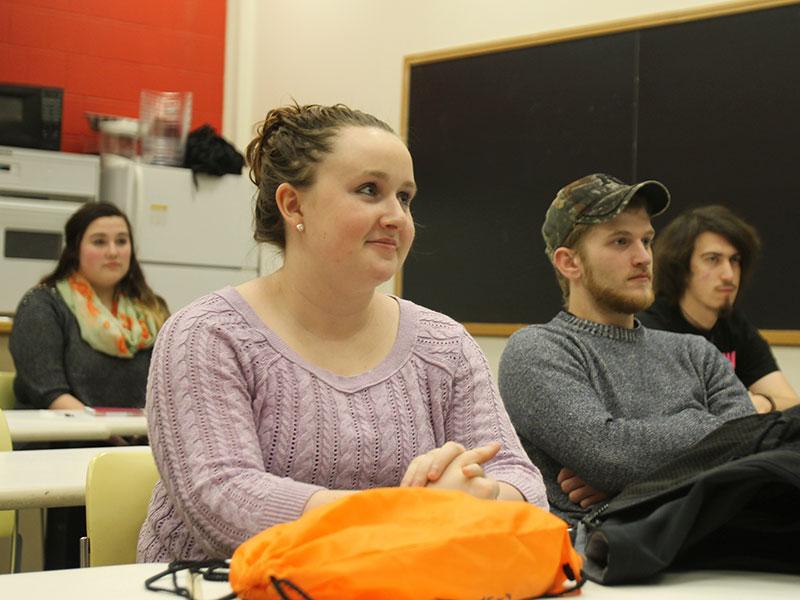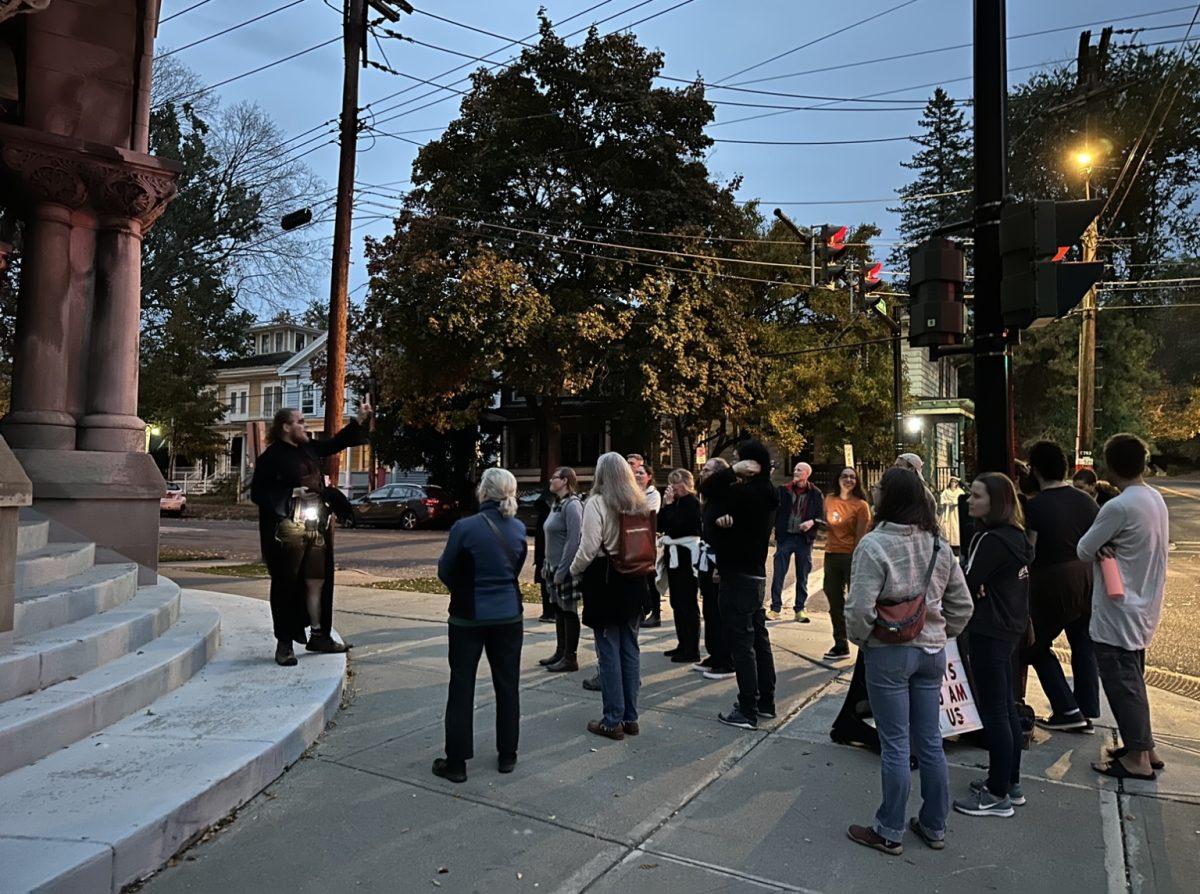Ithaca – Feb. 24, 2014 – Tompkins Cortland Community College announced Feb. 12 it will open a student-operated restaurant, “Coltivare,” that will serve food from an organic farm located on the college campus.
The restaurant, which is expected to open to the public in late October, will be housed in a rented space at 137 South Cayuga Street. The 17,000 square feet of building will also include culinary labs, classrooms and an amphitheater.
Coltivare is the Italian word for “cultivate,” said Susan Stafford, assistant professor and chair of the Hotel Restaurant and Culinary Arts program.
“It just lives within us, that whole idea of cultivating students, cultivating the earth…cultivating relationships with our local community and cultivating relationships with our tourists,” she said.
The farm-to-bistro project will be part of the college’s Culinary Arts degree program and the Sustainable Farming and Food Systems program, beginning Fall 2014.
“From these curricula, [students] will have in-depth learning experiences from our on site lab facilities.” TC3 president Carl Haynes said.
A $2.3 million Regional Economic Development Council grant from the Empire State Development Corporation, a $2 million gift from a private donor, and loans from local banks are funding the project.
Both the farm and the restaurant, which are separate Limited Liability Corporations, will be owned by the TC3 Foundation Board of Directors. The Limited Liability status doesn’t hold owners personally accountable for the company’s debt beyond the sum of their shares.
Haynes said revenue generated by the farm and restaurant will be used to pay rent. Each enterprise will also use part of their revenue for full-time employee salaries and for operating expenses.
The farm will sit on a plot of land spanning approximately 60 acres, TC3 Farm Director Todd McLane said. In the first year, McLane plans to grow three to four acres of mixed vegetables, and in years to come he hopes to expand.
“We have a limited growing season in this region so that’s why we’re looking into value-added products,” he said. “We could make salsas, tomato sauce, pickles and jams.”
McLane explained that sustainability is the central goal of the TC3 farm — food will be grown organically and the farm will use geothermal and solar alternative energy sources.
The farm also holds educational potential, Kelly Wessel, chair of the Sustainable Farming and Food Systems program, said.
“This farm is for everybody,” he said. “The early childhood students can inject themselves into it and learn some ways to incorporate gardening into their program; the way that my biology students can use it as a sort of ecological experimental playground.”
Though most positions will be held by students, the farm and the restaurant will also be creating jobs in the community.
“As [the farm] grows, we’re looking to have two to three employees, whether they’re full-time workers or work-study students,” McLane said. “The goal is, when we’re fully operational five or six years down the road, there’s going to be an operating manager and an assistant manager.”
Coltivare is currently looking to hire a director, a chef, sous chef, production kitchen staff and an events coordinator for the restaurant, Stafford said.
Haynes said very few colleges in the state have a working restaurant as a part of their culinary arts curriculum. He said even fewer have a section of their curriculum dedicated to the study of wine.
Brandon Seager, chair of the Wine Marketing program, said Ithaca is an ideal
location for this project.
“You have the wine industry, you have the food scene,” he said. “Then you have the hospitality industry with all the tourism that goes on not only for the Finger Lakes but also for the colleges, the skiing, the gorges. This is the place.”
Haynes said employers have already expressed interest in hiring graduates of these programs. For students looking to go into the hospitality industry, such as freshman Emilie Holmes, the farm to bistro program allows them to learn about multiple aspects of the industry.
“I know that to be successful in the hospitality program you need everything in the world around it,” Holmes said. “To be able to take culinary classes in a culinary facility and potentially having event classes — it’s just going to be an absolutely incredible experience.”
Joe Hayward, a TC3 freshman who is taking classes in the sustainable farming and food systems program, said this project complements his plans for the future.
“I’d love to eventually buy a plot of land with so many of my friends who are also interested in this type of work and live off the land for a while…” he said. “It just seems like such a fulfilling way to live. I have seen people do it and it is beautiful.”







